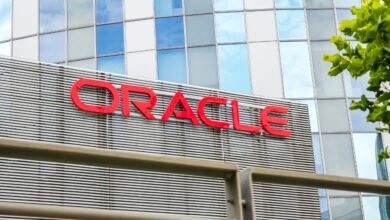China’s DeepSeek Shakes Meta: Silicon Valley’s AI Talent War Begins

▼ Summary
– Meta is investing heavily in AI, creating a secretive “Superintelligence Lab” after its Llama 4 AI model underperformed, leading to a strategic overhaul.
– Zuckerberg is aggressively recruiting top AI talent, offering massive compensation packages, including $100M+ deals, to researchers from OpenAI, Google, and other rivals.
– Meta’s rushed adoption of DeepSeek’s MoE architecture backfired, making Llama 4 harder to use and prompting leadership changes in its AI team.
– The AI talent war is intensifying, with Meta, Microsoft, and Google competing for researchers, while critics like Sam Altman compare Meta’s tactics to “mafia” behavior.
– Despite investor scrutiny over rising costs, Meta’s stock has grown 20% this year, but executives debate abandoning open-source AI for proprietary models.
Meta’s aggressive push into artificial intelligence has sparked a high-stakes talent war in Silicon Valley, with CEO Mark Zuckerberg personally leading a multibillion-dollar hiring spree to build what insiders describe as a “Manhattan Project” for AI development. The social media giant faces mounting pressure as its latest AI model, Llama 4, underperformed against emerging competitors like China’s DeepSeek, forcing a strategic overhaul.
Reports indicate Zuckerberg has authorized unprecedented compensation packages, including offers exceeding $100 million, to lure top researchers from rivals like OpenAI, Google, and Tesla. The newly formed Superintelligence Lab, operating in secrecy at Meta’s Menlo Park headquarters, has already secured high-profile hires such as ChatGPT co-creator Shengjia Zhao and Scale AI CEO Alexandr Wang. Despite these efforts, recruitment challenges persist, some candidates reportedly rejected offers worth over $1 billion.
The urgency stems from Meta’s struggle to keep pace with breakthroughs in AI architecture. DeepSeek’s R1 model, which utilizes an efficient mixture-of-experts (MoE) approach, outperformed Meta’s traditional dense models, prompting a rushed, and flawed, adoption of similar techniques in Llama 4. Developers criticized the update for being cumbersome, leading Zuckerberg to reassess his AI leadership team.
Investors are watching closely as Meta’s spending surges. The company recently increased its 2025 capital expenditure forecast by 10%, reaching up to $72 billion, with AI research costs potentially adding $3.5 billion annually. While Wall Street has tolerated the spending so far, Meta’s stock rose 20% this year, analysts question whether the gamble will yield results.
Zuckerberg’s vision extends beyond catching competitors. He aims to develop superintelligent AI capable of surpassing human cognition, integrating it into Meta’s platforms to revolutionize digital interaction and advertising. “There’s an absolute premium for the best talent,” he told The Information, emphasizing the need for a small, elite team to execute this ambitious plan.
As Meta prepares to report slowing revenue growth, the pressure mounts to prove its AI investments will deliver transformative breakthroughs, not just drain resources. The outcome could redefine Silicon Valley’s balance of power in the race for artificial intelligence supremacy.
(Source: Times of India)




